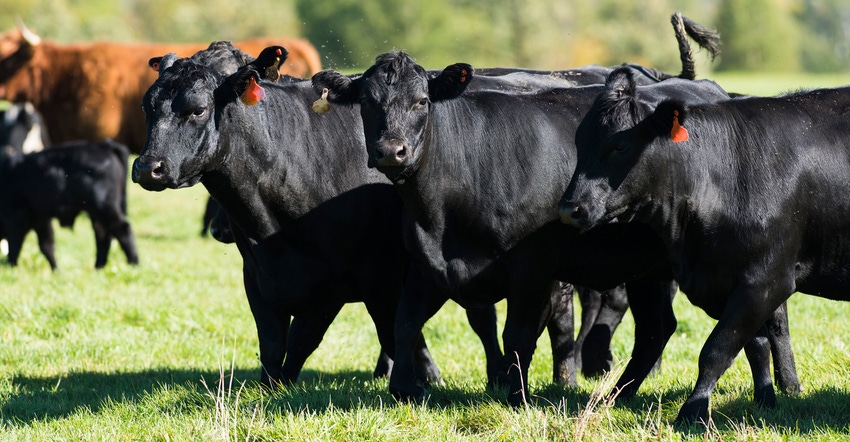April 2, 2021

Usually when an investment press release crosses a Farm Progress editor’s desk these days, it’s news about some startup with a new idea for agriculture. But a recent release got some attention because the investment didn't go to some high-tech new idea for measuring crops; it went to a veterinary service.
“A majority of our practice is production animals,” says David Gnad, CEO and a practicing veterinarian with Nebraska Vet Services, based in West Point, Neb. “Like a lot of things in agriculture, the volume of information and the expertise required to do a really good job continues to grow.”
Gnad explains that the investment, is going to help Nebraska Vet Services PC and Heritage Animal Health develop a network of veterinarians with a national footprint through strategic practice acquisitions. “Our goal is to meet the evolving needs of our customers by providing not only high-quality services and products but also data and information management.”
The portfolio investment will facilitate development of Heritage Vet Partners, combining Northeast Nebraska Vet Services PC and Heritage Animal Health LLC with additional clinics to expand its value-added services to livestock and dairy production farms throughout the Midwest and U.S. Main Street Capital Corp. partnered with the company’s existing owners and senior management to facilitate the transaction and provide growth capital, with Main Street funding $17 million in a combination of first-lien, senior secured term debt and a minority direct equity investment. Main Street is also providing Heritage Vet Partners with a revolving line of credit to support future growth initiatives and working capital needs.
“Main Street Capital is the perfect partner for us, since they are comfortable with the model of the practices and veterinarians continuing to have majority control of the business, which allows us to manage the strategy, day-to-day operations and customer service,” Gnad explains.
“The production animal industry continues to get better and more sophisticated, requiring a higher level of service,” Gnad said. “The data that is available to make decisions continues to grow, so our goal is to be able to provide service to the production animal customer that is very high-level.”
Gnad explains that the investment will drive a move for this practice to link with other clinics and help everyone elevate the level of service they provide.
Vet services support
A production animal veterinarian is in the business because they want to care for animals, Gnad says. The challenge is that the rising need to capture information, learn ways to maximize use of the information and maintain a cutting-edge practice isn’t getting easier.
This investment is going to allow the business to partner with other clinics to expand services to the customer. By going into the capital market, the business can expand its practice and further modernize to meet changing market needs.
“There are a number of very good practices with very good veterinarians,” Gnad says. “They're looking at some liquidity options with their practices, but doing it in a way that also provides continued local decision-making and identity while also providing a community that helps elevate their services.”
In essence, the potential exists for a kind of veterinary network of businesses getting support as part of Heritage Vet Partners. In addition to acquisitions, practice partners will be a resource for each other to help vet practices raise their game as customers reach out for more connected information.
For example, farmers are collecting more information in their operations, but how can a veterinarian put that to work to enhance herd health?
“So the customer might be seeing one veterinarian, but behind that veterinarian there’s an entire community, an entire group of veterinarians that are evaluating the most current research, looking at data in similar geographic areas or similar production units and putting best practices to work. That’s kind of the high-level view of how we see the opportunity.”
Ability to tap varied expertise
As data needs grow and treatment approaches change, that can challenge any veterinary practice. One issue, even for the best veterinary clinics, is access and use of broader knowledge. A vet on staff might be an expert in swine medicine and have a solid background for dairy and beef work. If that same veterinarian could lean on new information to bolster that dairy or beef information, the whole practice might benefit.
Gnad says that someone in a practice might like to work with data. That can benefit anyone involved as they analyze performance information for different practices.
This investment offers Heritage Vet Partners, the opportunity to “raise all boats” for those practices involved, Gnad says. “We really believe that that the team approach is the best way for us to provide the best service.”
About the Author(s)
You May Also Like






